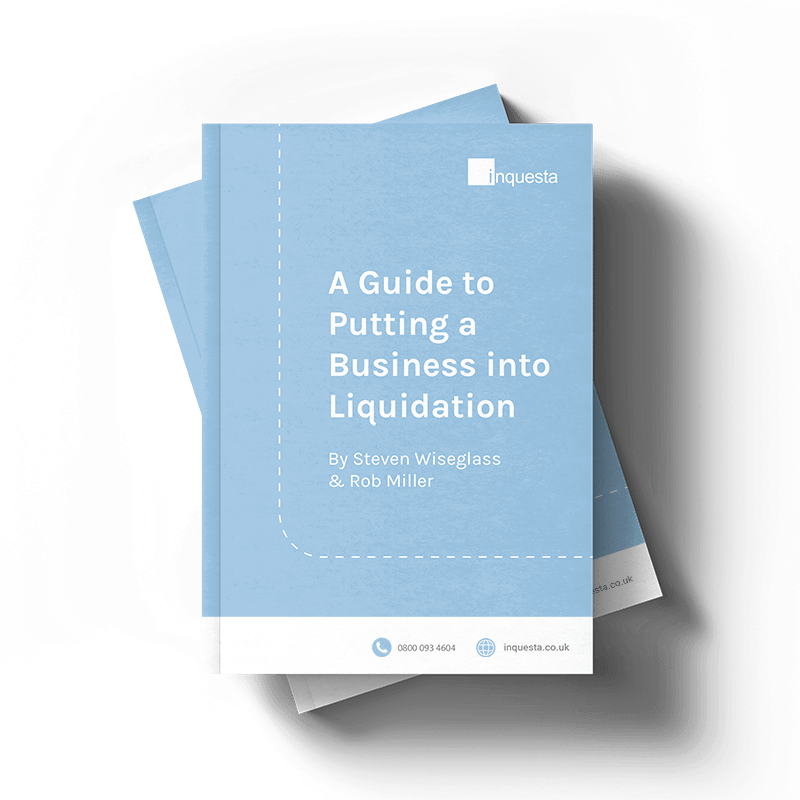Actions to Take if Faced with Bailiff Action for Commercial Rent Arrears
If you have received notification of court bailiff action for commercial rent arrears, time really is of the essence. This is because, if left unchecked, it could lead to the closure of your business and the loss of everything you have worked so hard to achieve. It is therefore essential that you take swift and decisive action at your earliest opportunity to avoid everything spiralling out of control.
Instructing court bailiffs for commercial rent arrears is not something that landlords will usually do lightly. It is usually a last-ditch attempt to recoup unpaid debts from tenants, when they feel that all other avenues have been exhausted. As a result, it may be possible to negotiate with your landlords and try to come up with an alternative solution. The reality is that they might be willing to accept lower payments for a period of time, to give you some much-needed breathing space to get your finances in order. Being upfront and honest about your situation is your best course of action if you want to stave off future enforcement proceedings.
Should you be unable to pay your debts, your next port of call should be a licensed insolvency practitioner and business recovery specialist. They will carry out a thorough investigation of your circumstances and outline what they believe are the best options for you. Potential courses of action include corporate restructuring, company voluntary arrangements (CVAs), administration, or even liquidation. The sooner you act, the more potential options you will have at your disposal.
It may also be possible to negotiate other debts such as unpaid taxes to HMRC via remedies like a Time to Pay agreements, which could free up some cash to deal with your commercial rent arrears. Should your business require an injection of funds, there may be some business finance options at your disposal. Of course, you should not seek to take one more money if it will only paper over the cracks.
Commercial Property Rent Arrears Recovery
Unpaid business rent arrears are dealt with under the Commercial Rent Arrears Recovery (CRAR) procedure. This enables landlords to instruct enforcement agents (court bailiffs) to take control of goods, provided the arrears are at least seven days’ worth or more.
It is worth pointing out that landlords do not have the right to take possession of goods themselves. As a result, they must consult with a certified enforcement agent to take action on their behalf.
Aside from the CRAR process, a commercial landlord can also take out a County Court Judgement (CCJ) against your business, or attempt to repossess the property and terminate the lease. Their final course of action is to take the matter to court and seek a winding up petition to close down your company.
The Rights of Commercial Bailiffs
When acting on Commercial Rent Arrears Recovery cases, there are a number of things court bailiffs can and cannot do. For example, they are unable to force entry into your premises and can only visit during your normal business opening hours.
Commercial bailiffs are able to seize assets up to the value of the amount over to you. This includes goods that belong to your limited company, money, and office equipment or machinery.
Items that cannot be seized include:
- Goods that are incorporated into the premises
- Goods belonging to the landlord
- Any rented or items bought under Hire Purchase
- Items that are in use at the time (with some exceptions)
Download our FREE Guide to Liquidation
If your business has received a winding-up petition, understanding the liquidation process is vital. If you aren’t able to get your winding up petition dismissed, or addressed in another way, it can easily lead to compulsory liquidation if not addressed quickly, making it essential to explore your options and take well-informed action.
Our FREE Liquidation guide provides clear, expert advice on:
- Key warning signs that your business may be in danger of possible liquidation.
- Which insolvency options are available and which ones best suit your situation.
- What the liquidation process looks like
- Things you should be aware of throughout the process.
- What life after liquidation looks like.
If you’re considering liquidation or seeking more information, download our comprehensive Liquidation Guide and explore everything you will need to know.

How the Commercial Rent Arrears Recovery System Works
The commercial rent arrears recovery system comprises a number of important steps that must be carried out. These range from ensuring CRAR is relevant to the case, serving a notification of enforcement, and seizing certain assets from an indebted business.
Here is a brief summary of the required actions:
How Inquesta Helps with the Commercial Rent Recovery Scheme
If you are being threatened with court bailiff action as a result of commercial rent arrears, you need to work with a company you can rely upon. This is where Inquesta can help.
As a licensed insolvency practitioner and business recovery specialist, we offer a truly holistic service that puts your best interests at the forefront of everything we do. Our team will carry out a thorough review of your circumstances and outline what we believe are the best solutions for you.
Unlike some service providers, we will ensure that all options remain open to you for as long as possible and will never force you down one particular route. We are experts in all forms of corporate recovery, such as business restructuring, administration, and company voluntary arrangements.
Our process begins with a no-obligation consultation, in which we outline how we believe you can help your case. A straightforward, no-nonsense service that you can trust.
Get In Touch
Our Specialist Team
Our team of experts are perfectly placed to help you deal with court bailiff action.

Steven Wiseglass
Director of Insolvency
A co-founder of Inquesta, Steven is a licensed Insolvency Practitioner with over a decade of experience in the field. He is a member of the Insolvency Practitioners Association, Association of Business Recovery Professionals (R3), and his insolvency licence is issued by the Insolvency Practitioners Association. In addition, he sits on the R3 committee of the North West Regional Committee.
Steven specialises in advising directors of small to medium-sized businesses, and has a wealth of expertise in providing the most appropriate advice whatever the firm’s circumstances may be. He has also been instrumental in helping company directors save their business and rebuild them into successful enterprises.




